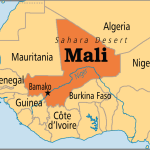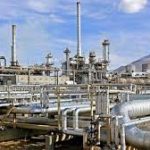
Rising Costs Hit Abia, Lagos, Ogun, Rivers Residents Hard As Citizens Struggle To Make Ends Meet

Nigerians across the country are grappling with skyrocketing living costs, driven by a hike in fuel prices that has triggered sharp increases in transportation, food, and other essential expenses. In Lagos, the commercial and economic hub of Nigeria, residents are feeling the pinch particularly hard.
Naomi Amakanyadioha, a youth corps member living on the Mainland and working on the Island, described her daily commute as “the ugliest part of her ordeal.” She lamented that her monthly stipend of ₦33,000 barely covers transportation costs, let alone food or other expenses. “Since August, I’ve only been paid once at my workplace. Imagine working without pay and still being expected to show up every day,” she said, criticising her employer and the unsustainable cost of living. “The 33k does not even cover my transportation for the month. Talk more about feeding. The NYSC 33k allowance, doesn’t suffice for the month”.
Others, like Cassandra Eze, are struggling to set up homes due to high rents. “It’s just me and my mattress for now,” she said, explaining how rent had depleted her savings, leaving little for other essentials needed to prep her home.
While some Lagos residents like David Bamgboye, were already accustomed to a frugal lifestyle, the rising costs have only affected how much he is able to send to his family in Holland.
The impact of the fuel price hike isn’t limited to Lagos. In Abia State, commercial tricycle rider Chibueze Nwosu shared how his earnings have plummeted as customers cut back on transportation. “I used to have a regular customer who would always board my Keke while at the close of the day, but since the cost of transportation became higher, she now walks home or begs for lift because she wants to keep her fare for her children so they won’t trek to school the next day”.
In Rivers State, Jennifer Uneke, another corps member, expressed frustration over how even basic meals are becoming unaffordable. “I don’t buy things the way I used to. I mean I used to take custard with milk and Milo. Now it is either milk or Milo. if I want to cook beans, I’ll consider my gas then I’ll have a rethink”.
In Ogun State, the financial strain is visible on the streets. “Everybody has turned to a beggar. At every junction, you’ll meet people asking for help,” said Segun, a resident, adding that it’s now common to exhaust one’s fare on alms. Foluke Adegbola, also from Ogun, revealed that she now relies heavily on loans. “Whatever I earn goes straight into repaying debts, only to take another loan,” she said.
The economic challenges are forcing Nigerians nationwide to make tough choices and adapt to increasingly harsh realities, as the ripple effects of rising fuel prices continue to upend daily lives.
Read More:
- CBN Hikes Interest Rates to 27.50 Per Cent, Sixth Time in 9 Months
- Zambian Miners Rescued After Being Trapped During Nationwide Blackout
About The Author
Related Articles
For Bolé Festival, The Future Still Tastes Like Home
There is a unique energy in Port Harcourt every August and September....
ByIkenna ChurchillSeptember 18, 2025Babatunde Apalowo’s Next Nollywood Film, Londoner, Is Personal, but Its Questions Are Collective
Babatunde Apalowo has always been drawn to stories that feel intimate. His...
ByIkenna ChurchillSeptember 10, 2025Nnamdi Kanaga’s “Water Girl” and the New Wave of Mythmaking in Nigerian Cinema
The crackle of a Montana winter seems worlds away from the humid...
ByIkenna ChurchillJuly 17, 2025Exclusive: MI6, CIA-linked NGOs, Bill Gates Are Directly Writing Nigeria’s Security, Health, Food And Tax Laws
Foreign intelligence agencies and foreign organisations – including those tied to the...
ByMayowa DurosinmiJuly 11, 2025












Leave a comment